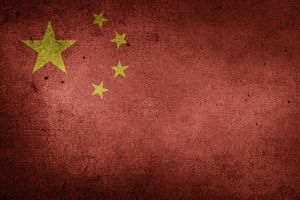China’s overseas anticorruption operation was launched in 2015 as an expansion of President Xi Jinping’s domestic anticorruption crusade.
On September 25, the Central Commission for Discipline Inspection (CCDI) — the top anti-corruption watchdog of the Chinese Communist Party (CCP) — announced that another corruption suspect who had been on China’s list of 100 “most wanted” economic fugitives abroad has returned from the United States to China and given himself up.
According to CCDI’s announcement, Xu Xuewei is the No. 91 fugitive on the list of 100 most wanted Chinese fugitives abroad and is the 46th to return. Xu once ran several companies in the eastern Chinese province of Jiangsu and fled to the United States in November 2012 after being suspected of contract fraud. China issued a red notice for Xu through the International Criminal Police Organization (INTERPOL) in 2015, labeling him as one the the most wanted fugitives in China.
Chinese foreign ministry spokesperson Lu Kang commented on the case at the regular press conference on September 25, saying that Xu’s repatriation demonstrated the government’s resolve. He went on to say:
It once again proves that fleeing China doesn’t mean that one can escape the punishment of the law and foreign countries are not the punishment-free paradise. Even though they fled to the remotest corners of the globe, they are bound to be pursued and brought to justice. It is the only right choice for the fugitives abroad to let go of illusions and return to China to give themselves up as soon as possible.
CCDI said the anti-graft office in Jiangsu Province has “made an all-out effort” on Xu’s case but did not provide more details. The CCDI also said Xu “volunteered” to return to China and give himself up “under the influence of policy and legal deterrence.”
Since Xi Jinping came into office in 2012, China has carried out a far-reaching campaign against corruption. In launching the overseas anti-corruption operation in 2015, Xi said, “We can’t allow foreign countries to become some corrupt officials’ sanctuary. Even if these corrupt people fled to the end of the world, we would bring them back to justice after five years, ten years, or twenty years of chase.”
The Chinese government officially dubbed the overseas operation “Operation Skynet,” a phrase taken from a Taoist saying: “The mesh of Heaven’s net is vast, but it lets nothing through.”
The United States is the top destination for Chinese officials fleeing corruption accusations. The United States and China do not have an extradition treaty and Washington tends to be wary of sending Chinese fugitives back to Beijing. Among the 100 “most wanted” economic fugitives, 40 are staying in the United States, 26 in Canada, and 11 in New Zealand.
While several European countries, including France, Italy and Spain, cooperated more with China to repatriate fugitives, the U.S. government is more cautions on the matter.
In 2015, the Obama administration warned Beijing about the presence of Chinese government agents operating secretly in the United States and demanded Beijing stop such activities. American officials at the time told the New York Times that Chinese law enforcement agents, who usually entered the country on tourist or trade visas, pressured “fugitives” to return to China immediately using intimidation tactics, such as threats against their family members still in China.
China has not been shy about the fact that it seeks the return of those it has labeled as economic fugitives. On the contrary, the government has released information about Operation Skynet, including that it would, if extradition and other methods failed, engage in efforts to “persuade” fugitives to return.

































